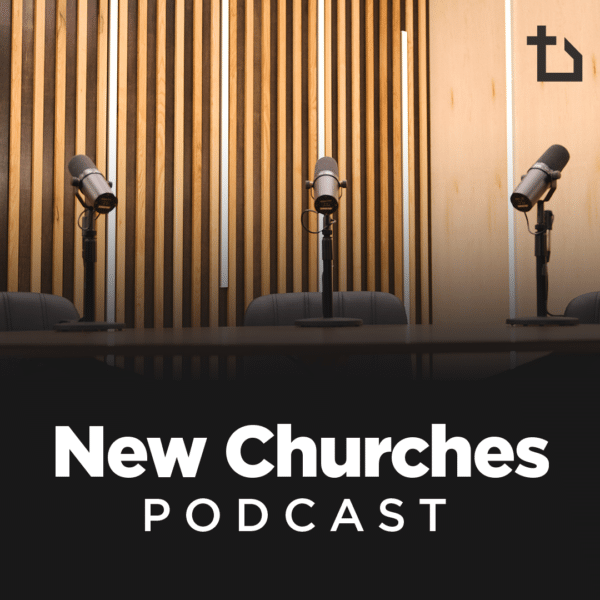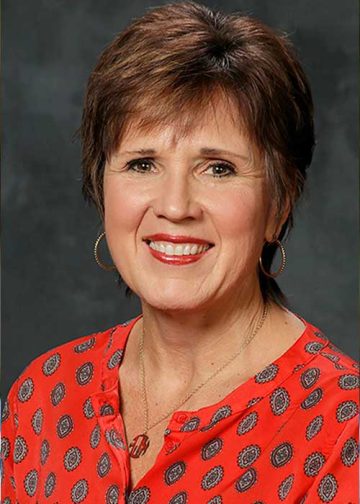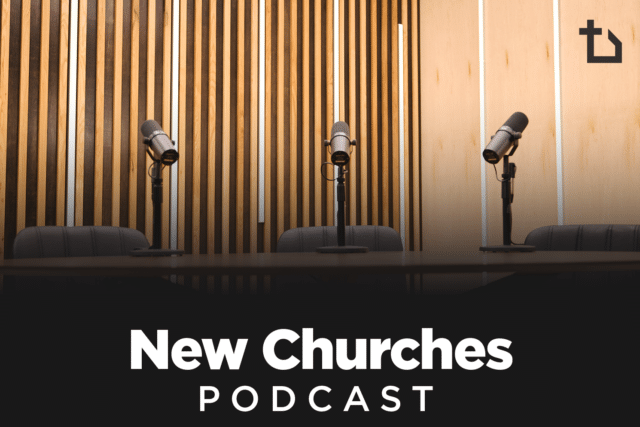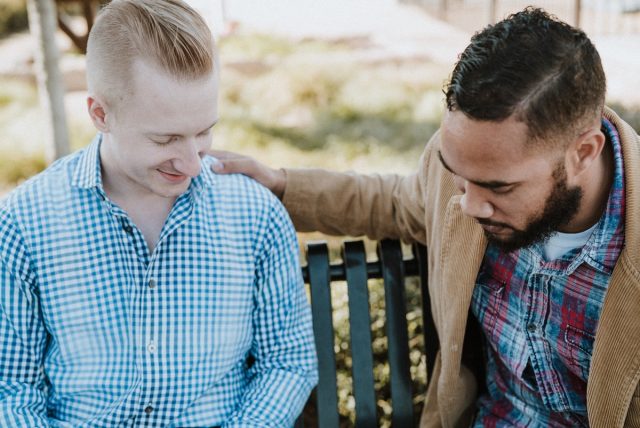New Churches Podcast | Season 1 | Episode 649
Friendship With Team Members
Ed Stetzer, Adam Muhtaseb & Kathy Litton

Episode 649: Some people think pastors shouldn’t be friends with members of the congregation. Others think that’s a horrendous statement. Host Ed Stetzer discusses the challenges of having close friendships in church with Adam Muhtaseb of Redemption City Church in Baltimore and Kathy Litton, who leads NAMB’s planter spouse development team.
In This Episode, You’ll Discover:
- Why it’s important for church planters to have life-giving friendships with their planting team
- Advice about forging friendships with teammates without the perception of favoritism
- Cautions about forming deep friendships with those serving on your team
- How to “guard your heart” but not close it when friends leave your church
- Whether to maintain a relationship when somebody leaves the church
Sharable Quotes (#NewChurches):
When people leave who planted the church with you – and inevitably people leave – you’ve done life together and that is hard. Friendships with team and staff members is even more complex. @EdStetzer
It’s imperative that leaders have friends on our team, but some of the things I’ve learned the hard way have made me more wise, more cautious, more understanding. Spiritual maturity and wisdom have a lot to do with how those friendships turn out in the end. – Kathy Litton
There’s biblical precedent that the people you work with in church planting are not just your friends but your family. In John 15 Jesus says, “You’re not my servants anymore. You’re my friends.” If Jesus says that about some messed-up disciples, I probably can say that about the people I work with. @Adam_Muhtaseb
The end of Romans 16 is an acknowledgement from Paul to his friends, his “beloved,” like “Greet Priscilla and Aquila, my fellow workers in Christ Jesus.” All these people are his friends. @Adam_Muhtaseb
I don’t know how we plant churches biblically without treating the people on our team like family. That being said, however, it’s really hard. @Adam_Muhtaseb
The reality is how much do you reveal? How do you kind of walk through this authenticity, which is necessary for friendship and community, when at the same time your your role is to lead? @EdStetzer
We need to be vulnerable. One of my favorite definitions of vulnerability comes from Paula Reinhardt, where she says vulnerability is a risk we take for a greater good. The greater good is transparency, opening our hearts and building a closer team – just being human as a leader and opening up your heart. – Kathy Litton
Some risk is inherent, because either their poor character or my poor character can at some point mess that up. As my own spiritual maturity has grown over the years, I’ve been able to have more healthy consistent friendships because I wasn’t messing them up with poor character or expecting too much from them. – Kathy Litton
I need their prayers. I need their support. I don’t need them to know all the details of any issue. – Kathy Litton
Having friends in the church really matters, particularly the elders and leaders. We have a deep community, but having friends in the church doesn’t mean I share the business of the church in that particular friendship. @EdStetzer
It takes maturity to not share everything with everybody, but there’s also wisdom in being in community with people as well. @EdStetzer
I don’t think you can make that problem completely go away. You have to have a lot of intentionality to step into their lives and keep the shared DNA of life together. – Kathy Litton
As leaders we need to be very well aware of showing partiality, but we can’t make stuff come out equal all the time. – Kathy Litton
We set an example of what it means to live in community, even in friendships outside the church. If we don’t have the capacity to build relationships outside our congregation, we’re probably not reaching our community very well. – Kathy Litton
If our church members see us at dinner someplace with someone who owns a local business and doesn’t go to our church, that’s a good example of us working hard to to not just swim in the pool of the church family all the time. – Kathy Litton
It starts with the realization that the team members aren’t my employees to build my platform. These are my families. So when I would have coaching meetings, I always start with, “How are you doing? How’s your walk with Jesus?” Just spending time with them has fostered trust and created relational capital. @Adam_Muhtaseb
We also have a phrase at our church: “No one drowns at RCC.” So if anyone feels like they’re drowning, you automatically get a break. I think those types of culture things have created an environment of safety and friendship in the office. @Adam_Muhtaseb
We care about each other and are for each other. I think the challenge comes, though, if you’re an effective church planter, you’re constantly pushing. It’s part of the job. So I’m not just trying to accomplish the goal, I’m also trying to love these people. @Adam_Muhtaseb
Rick Warren told me once that you have to think of pastoring as pastoring a parade. People come into the parade, are there for a while, then they leave the parade. But whenever somebody left the parade that we were super close to, that was hard. @EdStetzer
I can look back at and see how faithful God was to give us relationships with people who came into our lives. The ones who left didn’t diminish the value they gave us while they were there, and they helped shape us in in that time and in that season. – Kathy Litton
We have a set of friends that I call our playfriends. They come over. We don’t talk about anything serious. We play cards. We watch sports. We eat great food. Friends who help you get a break can end up being just as important as the ones that pray for us. – Kathy Litton
Sometimes pastors don’t play very well, but I think the long game is how we need to see those relationships. I can’t protect every friendship and make it last forever. – Kathy Litton
I know there’s going to be some wounds. We don’t have to deny that but but just have confidence that God’s got somebody else or that that relationship could be repaired in the future. – Kathy Litton
People come into our life and come out as leaders. That’s the sovereign hand of God and we have to rest in that. – Kathy Litton
We have to find a way for those goodbyes to be gospel goodbyes. Sometimes they’re hard conversations, but vulnerability and transparency really does matter. It’s going to be a balance that’s different for everybody. @EdStetzer
Helpful Resources:
- “Naked Preachers are Distracting” article by William H. Willimon
- Free Send Network ebook: Five Markers of Healthy Planting Wives
- Interested in learning more? Check out our Church Planting Primer
- Are you ready to enroll in our Church Planting Masterclass?
Please subscribe to the podcast and leave a rating and review on iTunes.
Published on March 15, 2022





